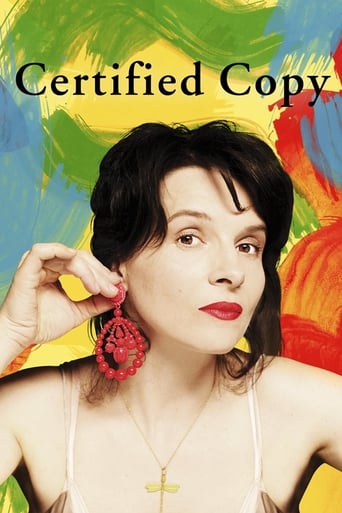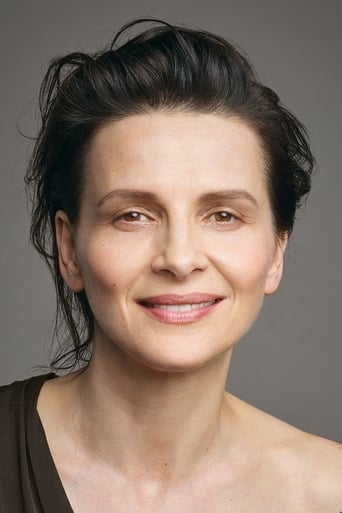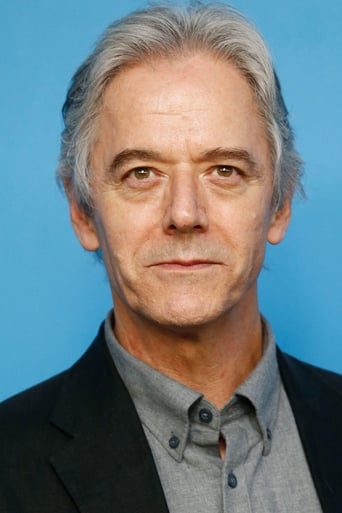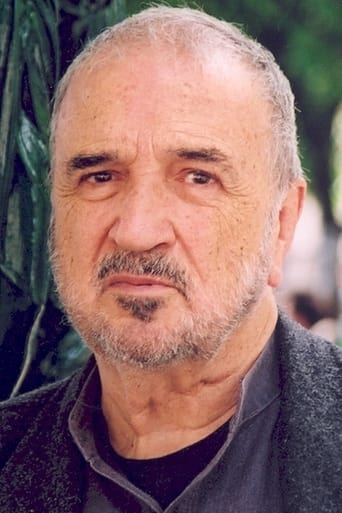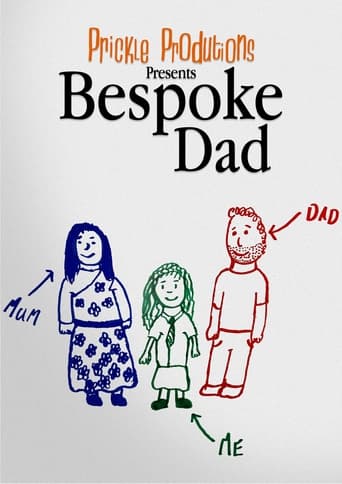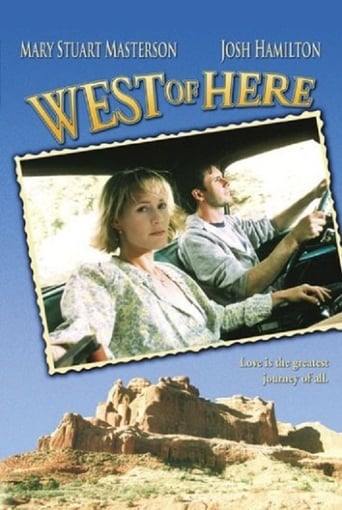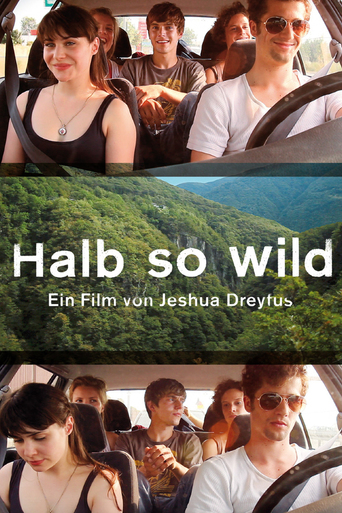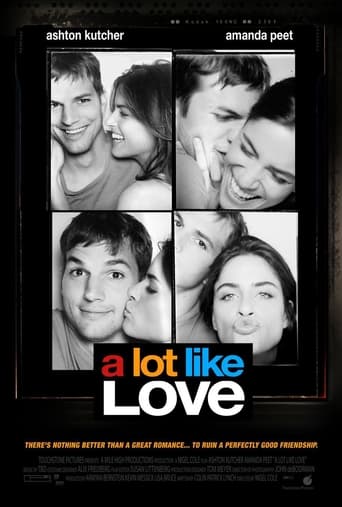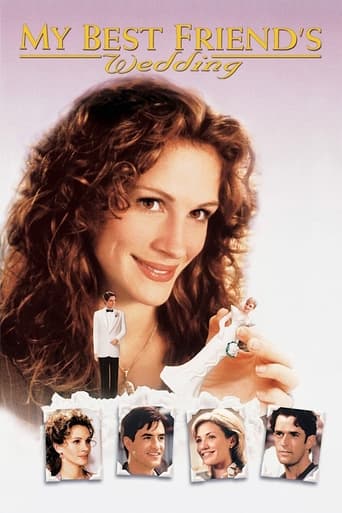Certified Copy (2011)
In Tuscany to promote his latest book, a middle-aged English writer meets a French woman who leads him to the village of Lucignano.
Watch Trailer
Cast
Similar titles
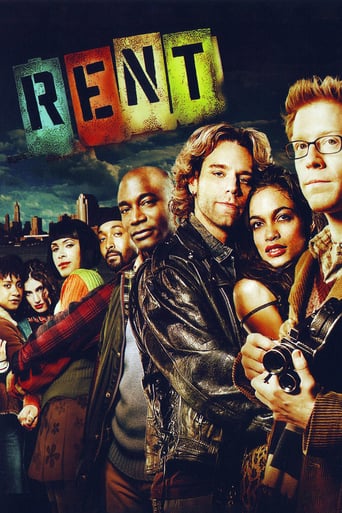
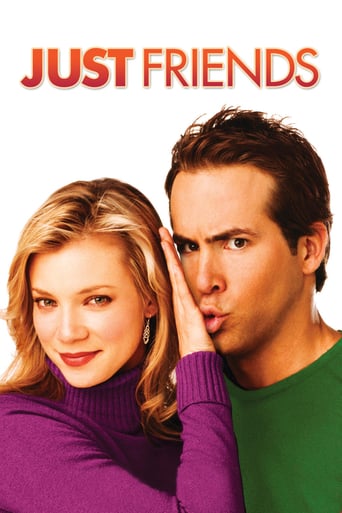
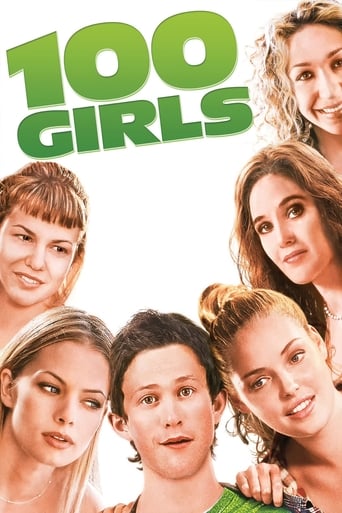
Reviews
Just perfect...
Did you people see the same film I saw?
Best movie of this year hands down!
Story: It's very simple but honestly that is fine.
Abbas Kiarostami's last few films were made outside his native Iran, and his 2010 effort CERTIFIED COPY is set in the colourful towns and countryside of Tuscany. Its two main characters have arrived in Italy from elsewhere: a Frenchwoman (never named, and played by Juliette Binoche) has lived in Arezzo for several years now, running an antique shop, while James (William Shimell) is an Englishman invited to lecture on an art history book that he has written.As the film opens, James is in fact giving that lecture, speaking of how a high-quality copy of a work of art may said to be better than the original. He soon meets the French antiques dealer, and the two spend an afternoon touring the nooks and crannies of Tuscany. With the Frenchwoman's awkwardness and Jame's suave, confident air, Kiarostami is clearly riffing on the romantic comedies of the last two decades. But then the film takes a magical-realist turn: the two begin speaking as if they have been married for many years already. The apparent relationship between the two continues to evolve and morph over the course of the film's 106 minutes (and what seems to be for them just a Sunday afternoon spent together) as Kiarostami broods on the nature of marriage as the years go by: people change over time, a husband and wife will eventually be rather copies of their youthful selves, but will they be copies better than the originals, or a sad mockery of their youthful idealism? For anyone who has been married (people who haven't may not get much of the film), CERTIFIED COPY is a moving evocation of the rigours of staying together with another person, and the shadowy undercurrents of even apparently happy unions. However, I was ultimately left with mixed feelings. Starting this film with a highly didactic lecture was, in my opinion, a bad choice: no audience wants to feel lectured to right off the bat. Then, the script is a bit too conversation-driven, becoming in parts a logorrhea that will overwhelm even viewers who can understand its trilingual French-Italian-English dialogue (it's probably horrible for those who rely on subtitles). Kiarostami could have trimmed the dialogue without sacrificing any part of his message.Before making this film, Shimell had been known only as an opera singer on the stages of Europe. He manages to make the leap to film actor quite well, with all the subtlety that his role requires -- indeed, I know someone quite like James in both background and personality, and Shimell's depiction bore a resemblance so close it was chilling. Juliette Binochedeftly manages to change her mood and bearing instantly to signal another shift in the film's intrigue. In spite of the European setting, much of Kiarostami's personal technique remains (as well as general aspects of the Iranian New Wave like only the voices of minor roles heard, with the characters themselves not shown on screen).
James Miller (William Shimell) is in Tuscany to do a reading of his latest book where he praises copies in art over the need for originality in most people's minds. A French antiques dealer (Juliette Binoche) comes to the reading with her son but he forces her to leave early. He later tracks her down and she drives him around the countryside without a destination. A café owner mistakes them for a married couple. Then the question arises whether it's actually true.Juliette Binoche is dressed down but is as alluring as ever. The first half is aimless wandering and can get meandering but Binoche is always fascinating. Shimell is great at being the cool academic. Binoche takes a big turn and he's able to follow her. There are logic questions about why the son doesn't seem to know James if they're actually married. Of course, it could simply point to them play acting although they are so emotional and specific in their conversation. It's a really fascinating turn. I wish it comes sooner and reveals more about their relationship.
This is film is definitely worth seeing if you are ready to confront your own personal -love - daemons.I won't go summarize the plot of the film, since previous reviewers have done it already. But what I will tell you is what this film is really about and why should anyone spend 1 hour and 46 minutes to see it. (It is interesting though that many reviewers approach this mesmerizing film in so many different ways.)In my opinion, this film is about love relationships and our copies of them: how we form them, what we expect, what we get and where things could possibly reach a dead-end. When I say copies of relationships I don't mean extra-marital affairs, I mean ALL romantic relationships. We begin a relationship by falling in love with the copy of the other person; the one we form in our minds, our idealized notion of him or her. We, then, dive into a relationship by first making a copy of its supposed present and supposed future in our own heads: how it should go, what would be great, what should bring us happiness etc. The years pass and we still live with this copy of a relationship, but yet we are not happy as we have been taught that only the original is the one that matters. But then again, reality can kill love very quickly and the romance can get out the window before we know it.One moment that I believe is crucial to my viewpoint is at the beginning: the scene were the two protagonists are in the car (and it is repeated at the end in another form) is when Elle mentions how her sister, Mary, loves copies and that although her sister's husband stutters, her sister finds it very romantic the way her husband calls her: "MMM MM Mary" That is probably something that most viewers will not give it the attention it deserves. I think this little part of a scene shows what, in my opinion, Kiarostami is really trying to say in the whole film: If you want to live in a happy love relationship and be happy with your partner.. Then, accept that you fell in love with your own copy of your partner, you are living with your own copy of your relationship, you acknowledge that this is your own copy, and at the same time you admire it for being a copy in your mind - In a "The beauty is in the eye of the beholder" kind of way..We could never fall in love without the copies each of us create in our heads, so what could we do? Acknowledge and Embrace them!It is true I fell for the trap to analyze what is going on between the two protagonists.. Are they flirting? Do they know each other? Did the have a relationship? Is the kid his? Are they married?But I soon realized this was not the point. Most films that leave loose ends, usually 'demand' from us to analyze the plot and the characters, if we want to uncover what could really be the ending. But this film is different and it demands you will find the answers in your life and your romantic relationships, not in the plot or characters. I must give merit to both protagonists for their playing, they were both great. Binoche plays the woman as a universal stereotype and Shimell plays the man as a universal stereotype . Binoche is the emotional person in the relationship and Shimell is the intellectual one. I can see why most people praise Binoche and they don't like Shimell, as emotional reactions more immediate to understand than intellectual ones. Binoche is indeed wonderful and I couldn't agree more that maybe this is one of the best roles she has ever played. However, I enjoyed Shimell as well, as he was outstanding in his role. He could communicate with his face, body positions and gestures what he was thinking, which if you ask me is much harder for an actor to do. The intellectual personality has a more limited palette of emotional expressions (NOT feelings!Don't get me wrong!) than an emotional one.Photography and location of the film are outstanding. I didn't know Kiarostami before this film, but let me tell you he's just got one more fan.See it: 1. if you liked "Before the Sunrise" type of films, 2. if you love Binoche 3. if like films that give you an intellectual challenge to deal with Do NOT see it: 1. if you like films where the plot moves quickly 2. if you are used to and like made-in-Hollywood romance movies 3. if you don't like reading subtitles (3 languages are spoken in the film)My rating is 9 out of 10
I like it when a film really understands its characters and as we follow them we can see their foibles and their follies and their humanity being opened up and challenged. The Coen Brothers do this with impeccable black comedy in the framework of a thriller, as in Fargo or Barton Fink or Burn After Reading, whereby the entire tenuous structure of people's lives begins to collapse and we are left perfectly conflicted with sympathy and delight in how this will play out. Then there's the Before Trilogy, and Journey to Italy, which quietly follows its characters learning about themselves as we are too. Certified Copy plays like a condensed version of the Trilogy, and has some of the 'lost in a landscape bigger than themselves' exploration of Journey, yet this film never feels as in control or as vitally connected to its ideas as those films do. Many things are discussed, and layers revealed, but it's just not entirely convincing. Not entirely convincing, but an excoriating watch nonetheless. When this film was finished, I felt like I had just witnessed an entire relationship, from the first fruitful seeds, to infatuation and love and friction and wear and decay, and in a sense I had because that is essentially what the two characters of the film take us through. The film begins with William Shimell, playing the role of modest and charming British academic who is promoting his book in Italy. The idea of this book gives the film its title and what the whole film begins to play around with: the copy. The copy, and it's relation to the original, its authenticity, and whether one should invest any time in an original if a recreation is believable. He would answer 'no' to that last thought. Juliette Binoche appears at his speech, leaves his translator a note, and the next day he appears at her small museum/exhibition/trinket shop, artistic debate is continued, and thus their journey begins. The boundaries of conversation between two people who are seemingly strangers soon dissolves and they are soon fluctuating between moments of bitterness, delight and contemplation, and soon enough in what appears to be a bizarre role-play, the assume the role of a married couple and any façade that they try to wear is soon being flayed. Binoche is utterly captivating and her award for Best Actress at Cannes is entirely deserved. She is seemingly inexhaustible, communicating in Italian, French and English and losing no degree of vulnerability, bitterness or magnetism between the languages, and she has a remarkable way of kind of softly inhabiting any given situation but being able to turn caustic and uncomfortable with immediacy. There are moments when the characters are sitting opposite each other in conversation and they are speaking directly into the camera, and when Binoche does this it's never less than transfixing.Shimmel, for a first time actor is for the most part quite grounded and reserved, but it's with him that the film often feels at its flattest. He's the more outwardly ruminating intellectual, always approaching things with a contemplative thought, and it often feels like the film is struggling to maintain a deep thought, as if in fear of being mocked for being nothing less than poetic. Maybe that's the way the character is supposed to be, but all his affectations get tiring. He comments on Eucalyptus trees being so totally unique, how each one has its own shape and definition and being unlike the other one, and as truthful as it might be, it's just a comment that leaves you thinking 'And?' At other times the exchanges of these characters are scintillating, as when an innocuous pit-stop at a café becomes changes the gears of their relationship, and Binoche begins to furiously criticise his cool, charming bullshit-masquerade. The dialogue operates in these two modes, between fascinating and questionable, but never really finds its footing.Abbas Kiarostami is clearly a man who knows exactly what he wants to do and how to do it, and at the jolly age of 74 all the wisdom and joy and despair he must have accumulated in his lifetime can be felt here, in the vivaciousness and the bitterness of the characters, in the way a camera can just sit and stay trained for minutes on end and let the people unfurl themselves, but sometimes it feels like all he is trying to much to do justice to all his collected experience in life. There's a shot toward the end with our couple standing in a courtyard together and just in front of them is a far older couple, man and wife, standing on the same side of each other, tentatively walking and supporting each other. The imagery is obvious but the connotations are beautiful, and it's the sort of a shot that could only have worked as aposiopesis to the journey preceding it. (Maybe that is the point)So there was an ambivalence I felt throughout the film, but it's hard to dismiss something this lovingly made, as an expression of the melancholy of our relationships in life. There's a blustery and picturesque feel throughout this Italian journey that is hard to argue with.
